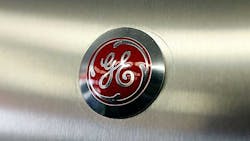A Simpler GE -- Company Sells $26.5 Billion in Real Estate
NEW YORK --General Electric (IW 500/21) announced Friday it was getting out of most of its banking business, slashing back GE Capital and selling $26.5 billion worth of real estate.
The company said it would sell off most of the $500 billion in assets of GE Capital, a business which earned $2 billion last year.
But GE will retain its aircraft leasing and energy and healthcare equipment finance operations, businesses that are closely tied to GE's core industrial manufacturing operations.
The action follows the spinoff and public offering of GE's retail finance and credit card business, Synchrony Financial, last July, as the 123-year-old company gets back to its roots after years of letting finance drive much of its business.
The sale over the next two years of GE Capital assets could generate as much as $90 billion to be returned to investors via dividends, share buybacks and a share exchange, the company said.
The company heralded the move as getting back to core capabilities in advanced manufacturing technology.
GE manufactures aircraft engines and parts, railroad locomotives, turbines for the energy industry and health care industry equipment. It also develops a broad range of technologies in communications, consumer goods and health care.
By 2018 more than 90% of the company's earnings will come from its industrial business, compared to 58% currently.
"This is a major step in our strategy to focus GE around its competitive advantages," GE chairman and chief executive Jeff Immelt said.
"These businesses are leaders in technology, the Industrial Internet and advanced manufacturing. They are well-positioned in growth markets and are delivering superior customer outcomes, while achieving higher margins," Immelt said.
Immelt said the fallout from the financial crisis, which led to GE Capital being designated a "systemically important financial institution," (SIFI), drawing tougher regulation and capital requirements, spurred the move.
"The business model for large, wholesale-funded financial companies has changed, making it increasingly difficult to generate acceptable returns going forward," he said in a statement.
GE said it will ask regulators to remove the SIFI designation for the pared-back company.
"GE Capital will be smaller and simpler, with businesses designed to drive industrial growth," it said.
'A Simpler GE'
Since the crisis, Immelt has been moving steadily in the direction of greater focus on heavy industry to take advantage of greater investment around the world in transportation and infrastructure, and health care.
In addition to splitting off Synchrony, last year GE pulled away from consumer business, selling its famous GE appliances line to Sweden's Electrolux.
The company, in an ambitious deal, convinced French regulators to let it take over the energy business of struggling French rival Alstom for 12.4 billion euros (US$13.1 billion).
"Creating a simpler GE will position us to deliver superior outcomes around our core capabilities," Immelt said.
"Every GE business -– including the (GE) Capital aviation, healthcare and energy 'vertical' financing businesses -– will be part of the 'GE Store' of technology, process tools and cultural strength."
The company said the shift should not change its outlook for this year of $1.10 to $1.12 in operating earnings per share.
Copyright Agence France-Presse, 2015
About the Author
Agence France-Presse
Copyright Agence France-Presse, 2002-2025. AFP text, photos, graphics and logos shall not be reproduced, published, broadcast, rewritten for broadcast or publication or redistributed directly or indirectly in any medium. AFP shall not be held liable for any delays, inaccuracies, errors or omissions in any AFP content, or for any actions taken in consequence.
